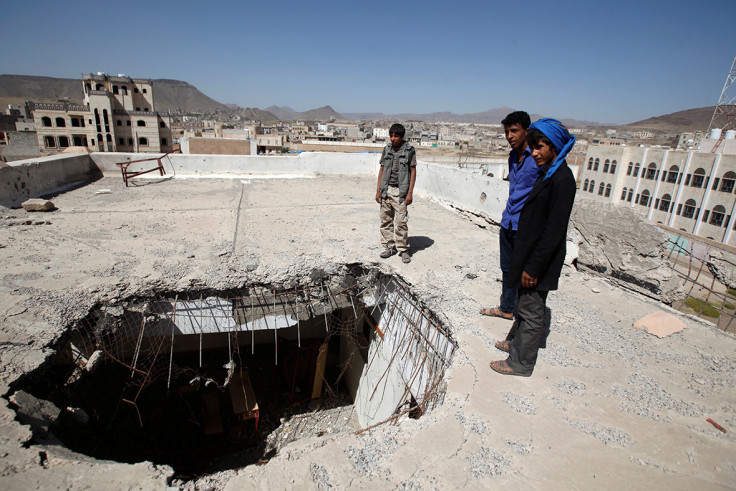Meet the British firms helping arm Saudi Arabia as it drops its bombs on Yemen
How many more will have to die before the UK government finally says that enough is enough?

It would be hard to overstate the scale of the crisis facing Yemeni people. For the last 18 months a Saudi-led coalition has been conducting air strikes which destroyed vital infrastructure and killed over 10,000 people.
It has created a terrible situation that has displaced over 3 million people and left more than 2.2 million children in need of medical care. Some of the stories and images coming out of the conflict are truly horrific, with over 150 people killed by the bombing of a funeral last weekend.
Despite its despicable human rights record, Saudi Arabia is by far the largest buyer of UK arms, and has been for decades. The government has licensed over £3.3 billion worth of weapons to the dictatorship since the current bombing campaign began.
As the death toll in Yemen increases, and the humanitarian situation continues to deteriorate, the UK's biggest arms company, BAE Systems, has just entered negotiations to sell even more fighter jets to the Saudi forces. Unfortunately, they are being helped every step of the way by UK government Ministers and civil servants.
Last week BAE told the Stock Exchange that "Discussions between BAE Systems, the UK government and the Saudi Arabian government are progressing to define the scope and terms of the next five-year Saudi-British Defence Co-operation Programme." The deal will almost certainly be on the agenda when Liam Fox is expected to visit Riyadh later this month.
BAE is not alone in supplying Saudi. Raytheon UK provides the Paveway IV bomb, which Human Rights Watch and others have linked to attacks on civilian infrastructure and businesses. In 2014 it signed a deal with the Saudi forces worth over £150 million.
Of course the government keeps on assuring us that it has one of the most 'rigorous' and 'robust' arms export systems in the world, and that it won't sell arms where there is a 'clear risk' that they 'might' be used to violate international humanitarian law.
With increasing scrutiny in parliament and from NGOs and the media, there is more pressure than ever before for Whitehall to revisit its relationship with Saudi Arabia.
The bombing of Yemen proves that nothing could be further from the truth. Around 100 UK companies have applied for arms export licences to Saudi over recent years.
These companies have enjoyed no shortage of support from, or access to, the upper echelons of government. Many of the largest companies, including both BAE and Raytheon, sit on advisory bodies like the Defence Growth Partnership and Defence Suppliers Forum which give them direct access to Ministers and senior civil servants. These groups bring together ministers and the chief executives of arms companies to formulate policy on a range of issues, ranging from domestic investment in the industry to selling weapons overseas.

They are aided by the Department for International Trade Defence and Security Organisation, a 130 strong civil service body that exists for the purpose of maximising arms exports. As long as civil servants are working as arms dealers and companies like BAE are intimately involved in setting policy, the government's priority will always focus on maximising weapon sales, regardless of how they may be used.
With increasing scrutiny in parliament and from NGOs and the media, there is more pressure than ever before for Whitehall to revisit its relationship with Saudi Arabia.
So far Ministers have refused to give any ground or to support an international investigation into the legality of the bombing, instead sticking to the line that the best people to assess if Saudi Arabia has carried out war crimes are the Saudi forces themselves.
Quite why a dictatorship with a proven disdain for human rights could be trusted to investigate itself for war crimes is unclear. It's (rightfully) not a suggestion that would ever be agreed to if it was proposed by Assad or Putin, so why would it be any more credible coming from Saudi Arabia?
There are things that Theresa May and Boris Johnson could do tomorrow that could make a big difference. They could end the arms sales and put a stop to the uncritical support that the UK provides for the Saudi regime. Instead they are continuing to pour arms into the region and standing by while a terrible humanitarian crisis is getting even worse. How many more will have to die before the UK government finally says that enough is enough?
Andrew Smith is a spokesperson for Campaign Against Arms Trade (CAAT). You can follow CAAT on Twitter at @CAATuk.
© Copyright IBTimes 2024. All rights reserved.






















